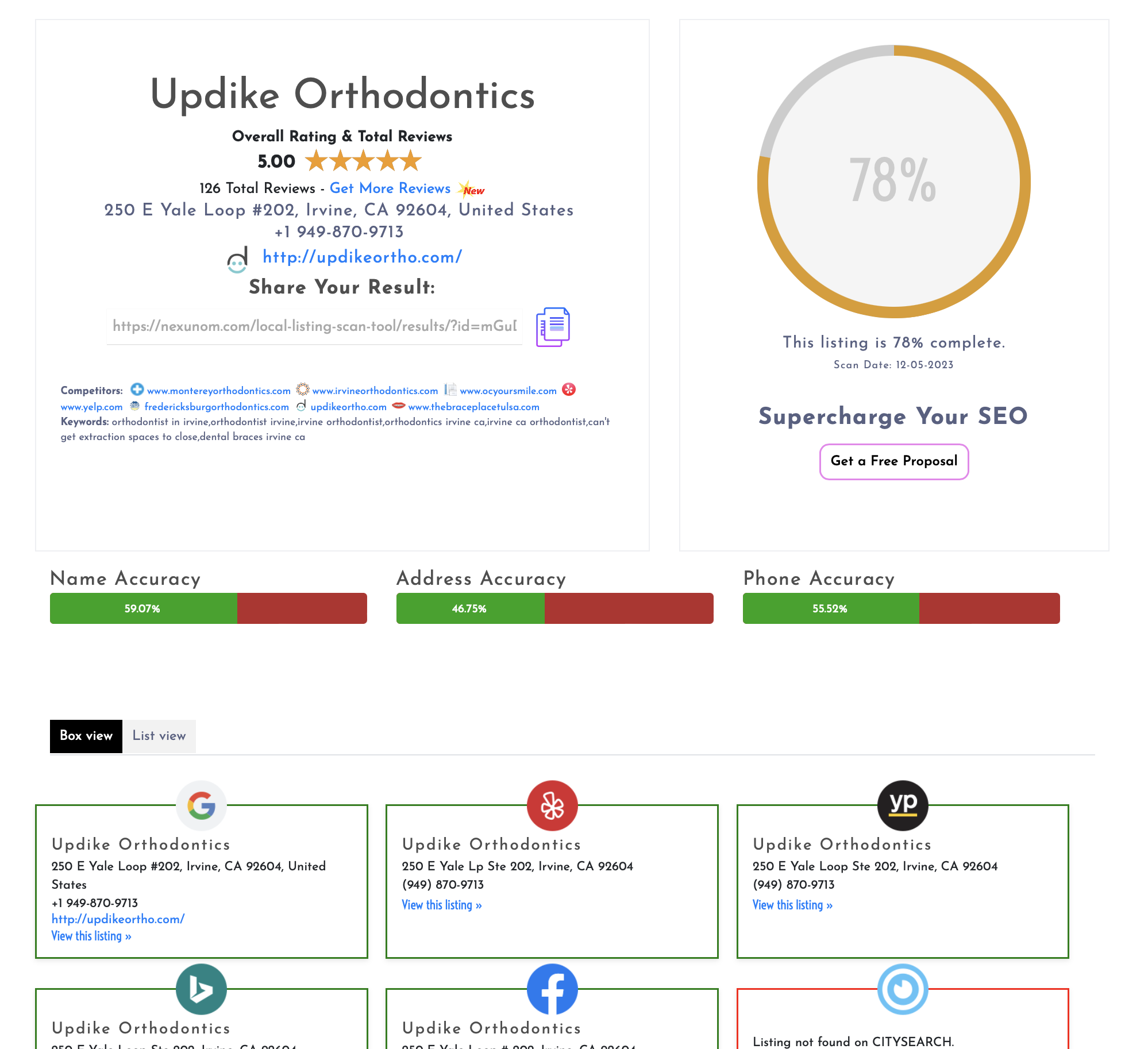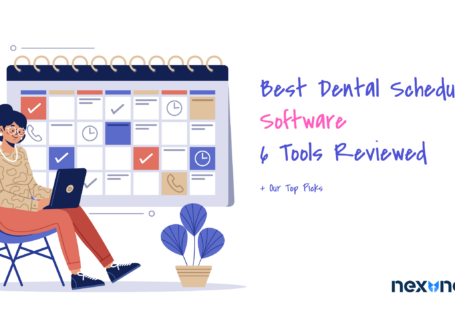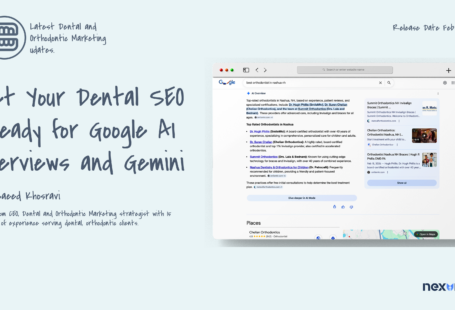-
Nexunom
Marketing firm providing different services and products.
-
Allintitle
Premium keyword research tool and long-tail keywords finder.
-
Review Tool
Review management tool used by local businesses to get more reviews.
-
Tavata
Two-way text-based website chat widget with Pay-Per-Text payment structure.
How to Run a Complete Local SEO Competitive Analysis [Updated – 2023]
For small and local enterprises, local search is a secret superpower.
Think With Google reveals that “where to buy” and “near me” mobile queries have skyrocketed to more than 200% during the past 2 years.
Meanwhile, a recent survey shows that in the US, about a third of digital consumers search for local enterprises online on a day-to-day basis.
These numbers prove that local SEO strategy is vital for any business to stay relevant. If your enterprise continues to be unoptimized for local search, there’s a high chance you’re missing out on prospects who are looking to make a purchase in your area.
To help you with this, we’ve created a comprehensive local SEO guide that includes tips, tools and tricks to help you get a good grasp on making the most out of your company’s ability to tap potential patrons utilizing local search to select and purchase products and services.
1. Monitor your NAP profile
Having a consistent NAP profile presents your business exceptionally to prospects. Since it’s also a ranking factor, it boosts SEO.
Here are some things you to keep in mind to achieve NAP consistency:
- Keep your data uniform across NAP and ditch common abbreviations like “St.” for street or “Co” for company.
- Add a link to your website.
- Keep your NAP updated.
- Sign up for Google My Business or other software for digital marketing solutions.
After implementing these strategies, you can discover and track how your enterprise is listed on premier local listing sites, yellow pages, organizational directories, and information aggregators. You can use Local Galex to check your NAP consistency, accuracy and completeness score.
2. Conduct keyword research
Some keywords are very popular, while others don’t get that much attention. Some keywords make climbing up SERP easier. Likewise, the keywords customers could be using to find you might vary in reality, so it’s best not to guess.
To avoid assumptions, it’s best to use a keyword research tool that unearths new meaningful long or short-term keywords and pegs popularity, competition, and difficulty of a particular keyword through keyword metrics. These metrics cover information regarding keyword complexity, popularity, search volume, and trends, among others.
Finding the right keywords that will usher meaningful traffic to your website and put you up top the SERP is the treasure you’re scouting for. This is what makes or breaks your website, making it one of the most value-adding high-return activities in your local SEO strategy.
Meanwhile, a robust keyword research tool can pinpoint relevant keywords, themes, inquiries and phrases that can be utilized in content creation and SEO optimization schemes. When harnessed correctly, you’ll see your company outperforming the competition.
We recommend using this keyword research tool to conduct your keyword research. Allintitle.co helps you find high intent long-tail keywords that your customers search to find you and helps you also discover keywords that you can rank for easier using a technique called KGR method.
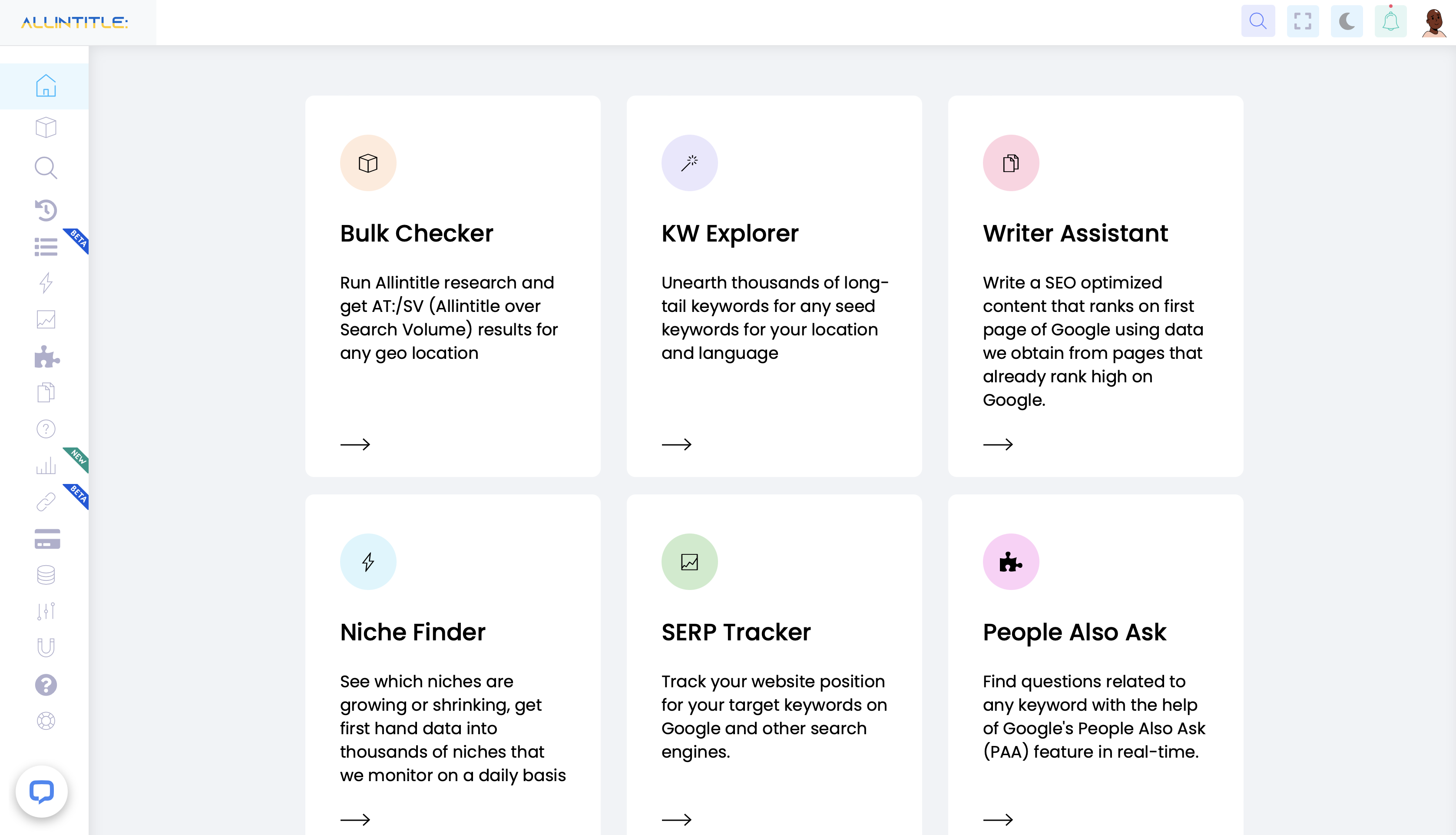
3. Develop a robust strategy for managing reviews
All local enterprises have the same goal: constantly improve customer service. The customer service you give determines your entrepreneurial success. Because of this, you must treat customer service and satisfaction as fundamental aspects of your local SEO strategy.
For this tip, we’ll focus on reviews. Reviews are the biggest chunk of virtual brand reputation. They relay a business’s story through the eyes of their customers.
The Local Marketing Institute believes that enterprises with perfect ratings on their listings witness a rough decline with their click-throughs and leads. As per the local SEO site, customers won’t want to engage with you with a 3.5 score, but a 3.7 to 4.9 range works just fine.
While customers are wary of 5-star reputations, they expect quick and active replies to their reviews.
If they provide positive feedback, they want simple appreciation. If they’ve had a negative experience, they’d like to experience resolution.
However, organizations have to be wary about negative reviews because they have the chance to originate from former employees or individuals company stakeholders have had personal disputes with.
But let’s be honest. We don’t want negative reviews to affect our standing online. To avoid them effectively, create channels for direct resolutions. Setting up a visible help request form on your website is a good place to begin. You can also use this review management software to automatically send feedback request to see how was the clients experience with your business and ask them to write you a review at the same time (see this guide on how to get more reviews.)
We also recommend auditing your body of online reviews. You can choose to manually audit it via spreadsheet to see whether customers are mentioning similar words and phrases during a particular time frame or you can implement local SEO tools, which are a must-have in any local SEO audit checklist. Review Tool’s reviews insights helps you monitor and audit your online reviews.
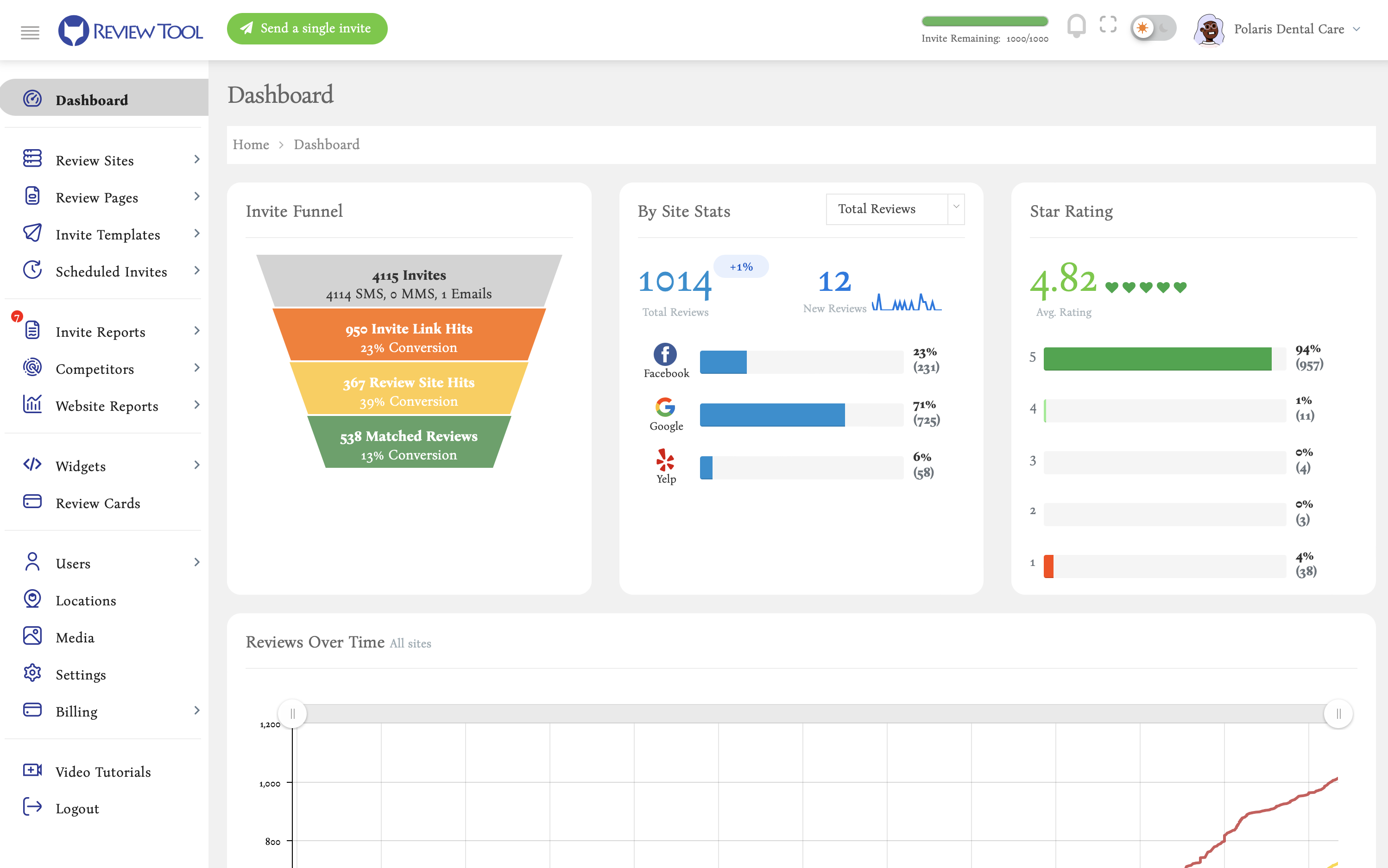
Auditing can also extend to top competitors. By analyzing their reviews, you can emulate their strengths and determine their weaknesses, which gives you a significant advantage in the market. With Review Tool’s competitors insights you can keep track of your your competitor’s reviews.
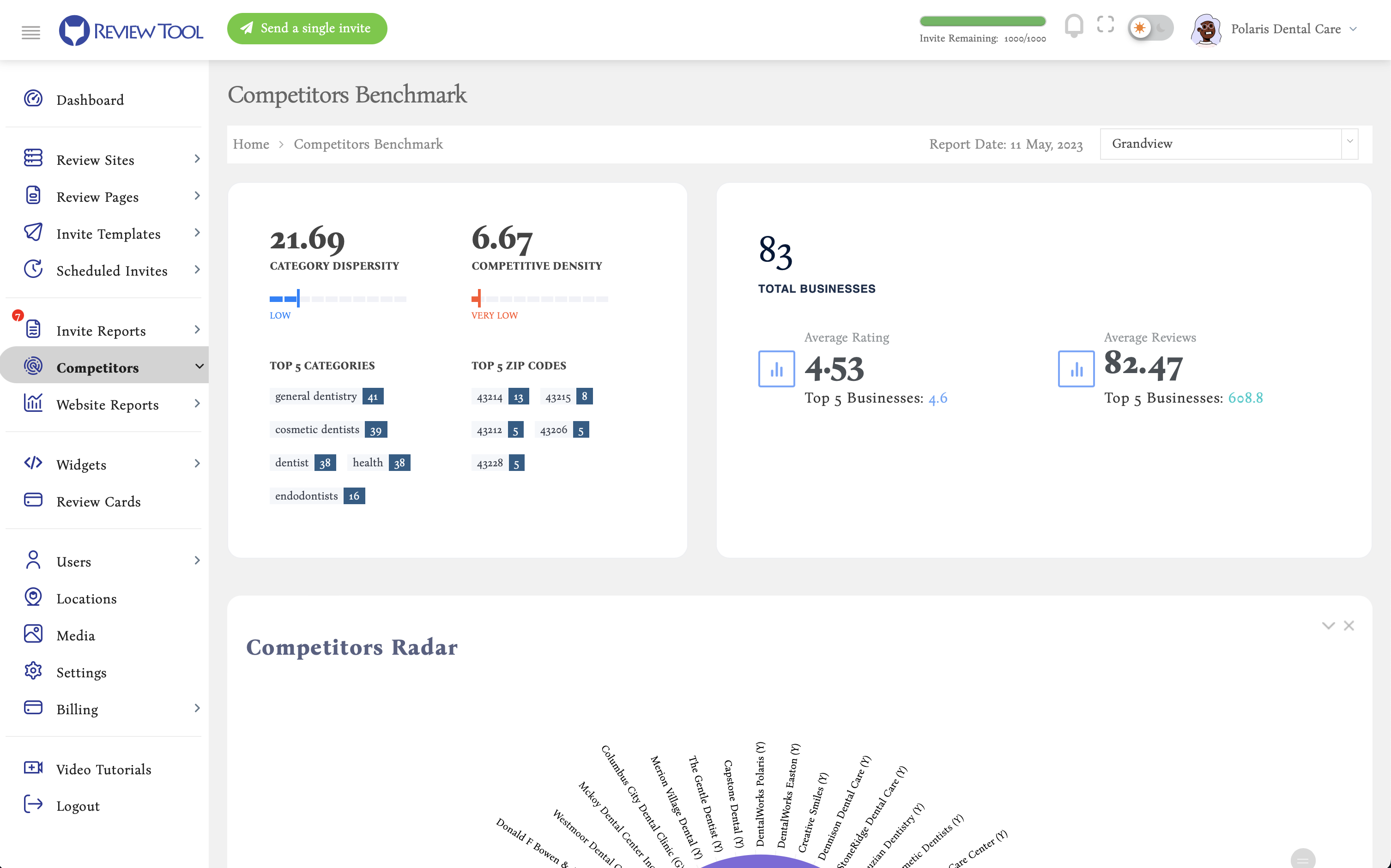
4. Use PPC ads wisely
We believe SEO and PPC can work hand-in-hand since both tools broaden your reach. A local SEO strategy that harnesses both can guarantee being found when people search for your products or services. Combined, they can deliver higher traffic and boost your digital presence.
However, the majority of organizations still fail to use PPC to their advantage. They witness shortcomings upon their local SEO analysis because they continue to commit errors when working with this form of advertising.
Here are some of the things you should consider when using PPC advertising like Google AdWords:
- Don’t advertise every product on your roster or every service you offer.
- Run ads during operational hours so you can attend to your customer instantly.
- Narrow your target area.
- Appeal to audience emotion over boring technicalities.
- Keep in mind keyword match types and include negative keywords.
- Point patrons to the right place.
- Don’t compare your progress with competitors.
- Work with a budget and stick to it. Base expectations on your expenses.
- Browse SEO software examples that have special functions for PPC ads.
5. Conduct an automated local SEO analysis
Monitoring and analyzing the results of each effort you make to market your business is vital to comprehend which aspects of your local SEO strategy are providing you with the most value and which elements need more work.
A local SEO analysis helps you acquire meaningful insights, make the most out of your marketing initiatives and scale your local business.
To do this, you need to establish metrics and set up goals to determine your establishment’s performance. If you’re using local SEO solutions, then you can even assign monetary values to particular goals.
Using local SEO tools on a day-to-day basis guarantees you’re looking after your website’s overall health, your organic keyword performance and the status of your profile compared to competitors.
To determine which platform works best for you, it’s important to grasp the level of intricacy you expect from your SERP data. Some tools are great at overseeing location information and monitoring activities related to certain solutions like Google My Business. Other tools focus on local keyword rankings, mobile vs desktop reach and SERP analysis. We recommend using SERP Tracker to monitor your website’s keywords rankings on daily basis. SERP Tracker comes with Google Analytics and Google Webmaster tools integrations and reporting helping you to monitor your most important KPIs and local SEO goals.
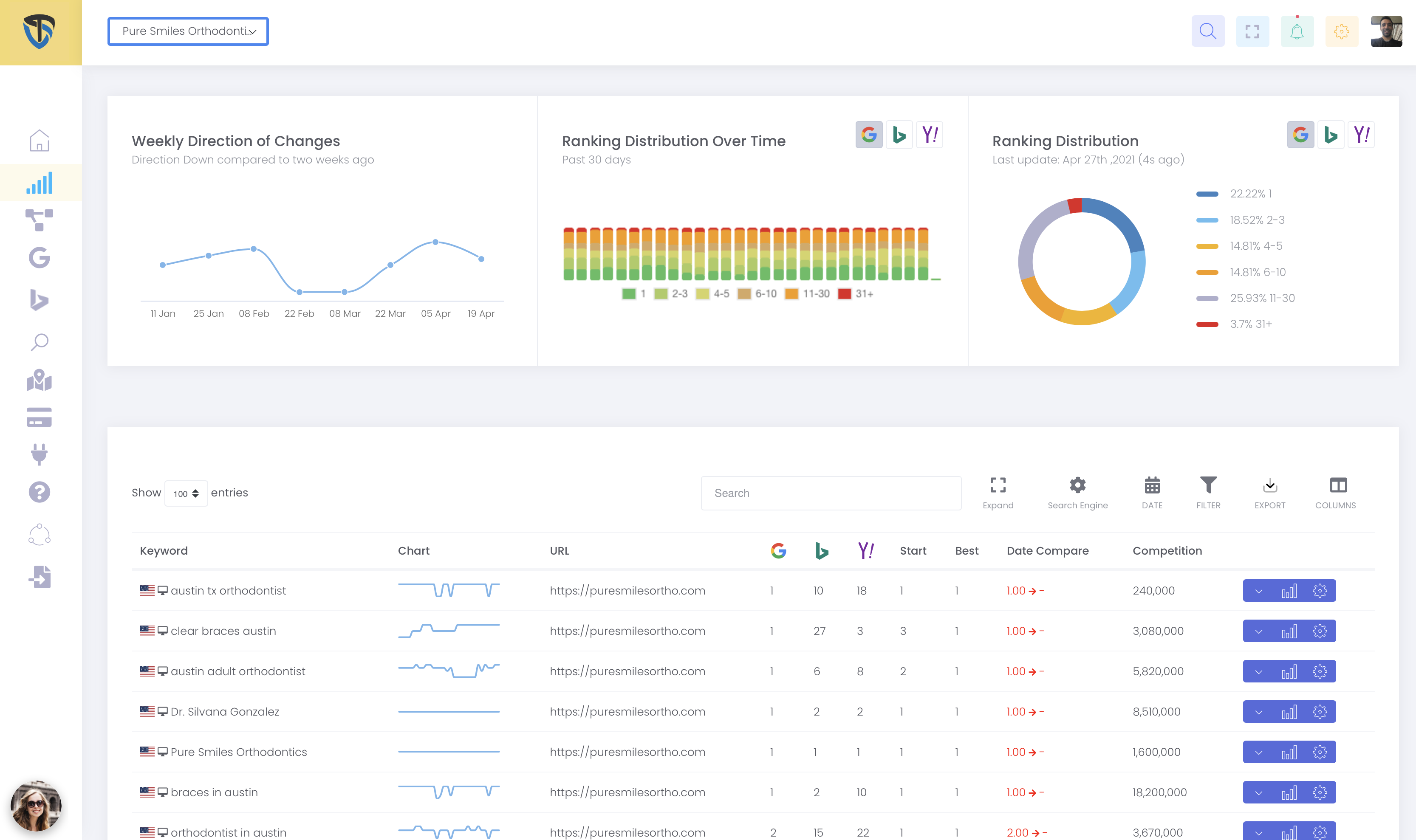
If you want to run a one-off analysis for your Google maps rankings you can use the Nexunom’s Local SERP Checker.
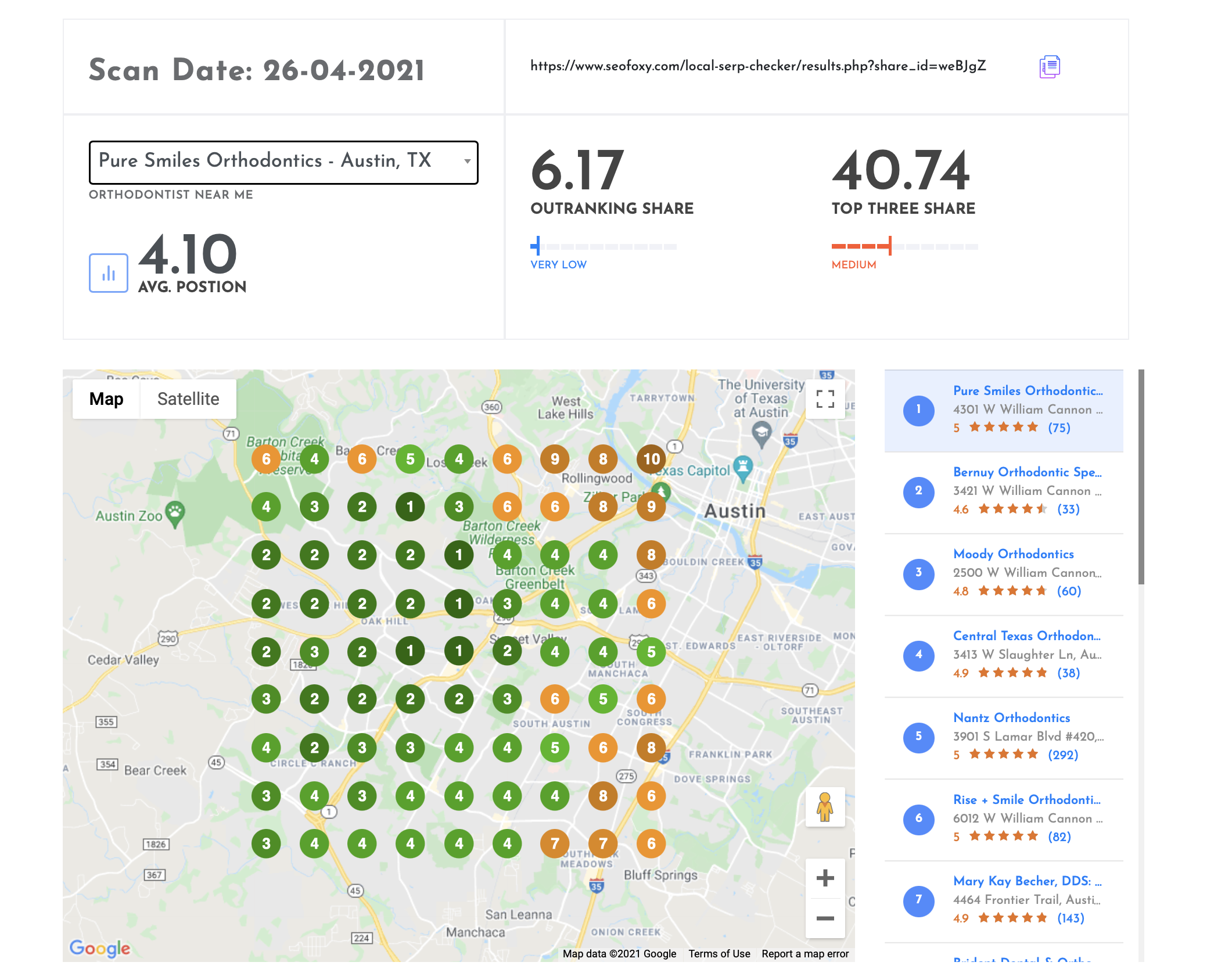
Once you’ve decided which tool is best for you and your campaign, consider these aspects for conducting an extensive local SEO analysis:
- Ratings, reviews and review responses
- Mobile vs. Desktop visibility
- Search visibility
- SERP feature monitoring
- Goal performance
There’s so much you can do with a local SEO analysis. We’re merely on the tip of the iceberg, and we encourage you to dive deeper.
6. Gear for mobile
Over half of global web traffic is on mobile, as per recent data from Statista. This is why setting up a mobile-friendly website and producing mobile-friendly content has become crucial for small and local enterprises.
When you develop a website or create content, concentrate on providing the swiftest and smoothest experience for your customers. To lighten the load, consider enlisting the help of accelerated mobile pages to easily modify your existing website and content to mobile-friendly pages.
7. Implement local SEO solutions
Last but not the least, take advantage of useful local SEO tools such as Nexunom to boost your ranking in critical and meaningful areas.
Nexunom offers a set of local SEO tools particularly designed to address local business marketing demands. Some of the functions you can enjoy with our local SEO platform include Google Maps SERP checker in different coordinations around your location using our Local SERP Checker. Finding long-tail keywords using our KW Explorer. Performing on-page SEO audit using our SEO Checker, and analysis of nearby competition using our Comp Insider.
These features make Nexunom Local SEO platform perfect for all kinds of local companies and agencies that wish to effectively execute their local SEO strategy.
If you are interested in Nexunom’s done for you SEO, PPC, Website Design or other marketing services contact us by filling our our request a proposal form today.
Final reminders for your local SEO strategy
We understand the hesitation towards investing in local SEO. The failures are at par with success stories; however, if you put all your effort and attention to the right aspects, you will emerge triumphant in a matter of time.
Keep in mind that when it comes to local SEO, you must focus on ranking for locations where you possess reach. Don’t waste time attempting to rank for keywords that can take months or years only to end up at the bottom of the SERP.
Local SEO is not a walk in the park, but we hope this local SEO guide has contributed towards attaining your marketing goals. When implemented right, these tips will expand your customer base and reel in more brand revenue.




